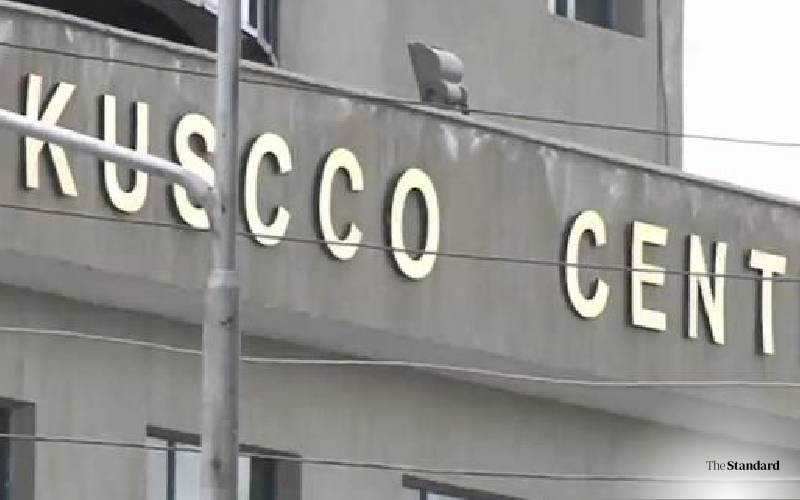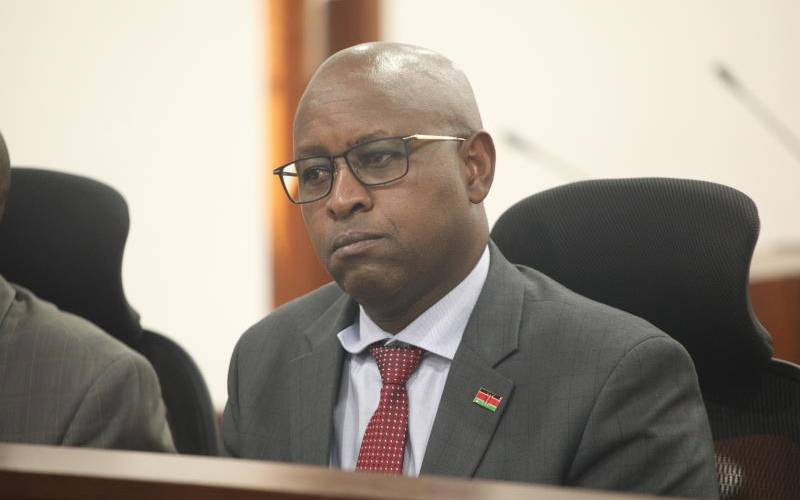Sacco non-remittances grows as more firms face turbulence
NAIROBI, August 22nd, 2024 – The government is grappling with the persistent issue of non-remittance of Sacco contributions, a challenge exacerbated by the intricate relationships between public institutions and the National Treasury. This was revealed by Co-operatives PS Patrick Kilemi before the National Assembly's Trade Committee at Bunge Towers today.
While the law empowers the Commissioner of Co-operative Development to take action against defaulting employers, the current economic environment and the symbiotic relationship between the National Treasury and public institutions complicate the enforcement of these regulations. PS Kilemi acknowledged that genuine business challenges, such as those faced during the Covid-19 pandemic, can be considered when assessing non-remittance cases. He cited media houses that struggled with reduced advertisement revenue during the pandemic as an example where discussions on payment arrangements could be initiated.
However, the situation becomes more complex when public institutions are involved. According to the Sacco Societies Regulatory Authority (Sasra), these institutions, being the largest employers, account for the largest share of unremitted contributions. Public universities lead the pack with Sh958.1 million in arrears, as per the 2023 industry report. County governments and assemblies follow with Sh865.1 million, while state corporations owe Sh162.9 million, and public sector companies like water and sewerage companies account for Sh79.9 million.
Sasra's Sacco Supervision Annual Report highlights a worrying trend: an increase in non-remitted deductions owed by public universities and tertiary colleges to regulated saccos. In 2022, this amount stood at Sh620.52 million. The report emphasizes that the financial health of university-based saccos is being undermined by high levels of non-performing loans (NPLs), a direct consequence of these unremitted contributions.
Private sector companies also contribute significantly to the problem, ranking third with Sh377.4 million in unremitted contributions. Church-based institutions come in sixth place with Sh72.5 million. The total unremitted contributions across all sectors amount to a staggering Sh2.6 billion, according to the report.
The law stipulates that employers who fail to remit Sacco deductions within seven days of the due date are liable to pay the deducted amount, along with compound interest of at least five percent per month. The Commissioner of Co-operative Development has the authority to institute civil debt recovery proceedings and appoint agents to recover the owed funds. PS Kilemi reiterated that Cap 490 empowers the Commissioner to surcharge and seize assets from defaulting employers for the benefit of Sacco members.
Despite these legal provisions, PS Kilemi admitted that enforcing them against public institutions is difficult due to their reliance on exchequer disbursements. He described the situation as an “interlinked ecosystem,” where universities often cite pending claims with the National Treasury as the reason for non-remittance. The PS emphasized the use of “soft power” and persistent engagement to remind institutions of their obligations, highlighting that timely remittances are in everyone's best interest. He advocated for contributions to be made on the same day employees are paid.
Sasra underscores that saccos heavily depend on regular deductions and remittances from employer institutions. Non-remittance not only affects the financial stability of saccos but has also been linked to the downfall of institutions like the Kenya Union of Savings and Credit Co-operatives Ltd (Kuscco). An audit report revealed that Kuscco accumulated Sh5.3 billion in bad loans, partly due to liquidity challenges faced by employer-linked saccos like Nyando Sacco and Sony Sugar Sacco. The report also attributed the collapse of Sukari Sacco to economic and management challenges in the sugar industry. It is estimated that saccos owe Kuscco Sh1.1 billion in unpaid loans.
PS Kilemi stressed the importance of addressing this issue to safeguard the financial well-being of Sacco members and the stability of the cooperative sector. He noted ongoing efforts to recover the Sh1.1 billion owed to Kuscco, urging defaulting saccos to fulfill their obligations.








